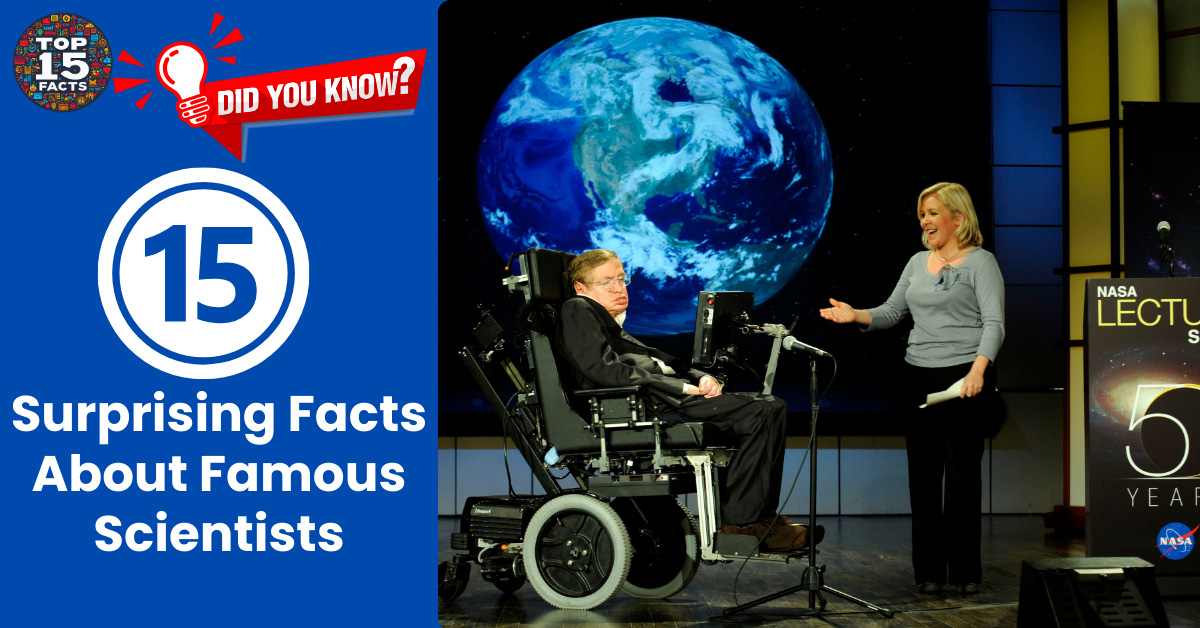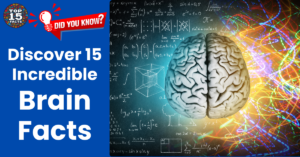The world is full of amazing discoveries, and behind each one is a brilliant scientist! These extraordinary people changed how we see the world through their ideas and inventions. Get ready to learn some surprising and fascinating facts about famous scientists that will leave you amazed!
15 Facts About Famous Scientists
- Albert Einstein, the super-smart scientist, didn’t start talking fluently until he was nine years old.
- Marie Curie was a science superstar! She won the Nobel Prize twice and was the first woman to do so.
- An apple falling on his head gave Isaac Newton a brilliant idea – gravity!
- Stephen Hawking was an incredibly brave scientist who didn’t let a serious illness stop him from studying the universe.
- Galileo Galilei got in trouble for saying the Earth moves around the Sun.
- Charles Darwin’s discoveries about how animals change over time completely transformed the way we understand life.
- Alan Turing was a codebreaking hero of World War II and helped invent the modern computer.
- Nikola Tesla made electricity safer and easier to use, changing the world.
- Jonas Salk saved millions of lives by inventing a vaccine against a dangerous disease called polio.
- Rosalind Franklin’s photos helped other scientists discover the amazing shape of DNA, the building block of life.
- Jane Goodall lived with chimpanzees to learn about them, teaching us that they are a lot like us.
- Archimedes shouted “Eureka!” when he figured out a science puzzle in the bathtub.
- Ada Lovelace was way ahead of her time – she’s considered the first computer programmer ever!
- Thomas Edison, the famous inventor, made the light bulb and over a thousand other amazing things.
- Leonardo Da Vinci was a true genius – he was a scientist, inventor, and a fantastic artist too.
1. Albert Einstein: The Late Bloomer Who Revolutionized Physics
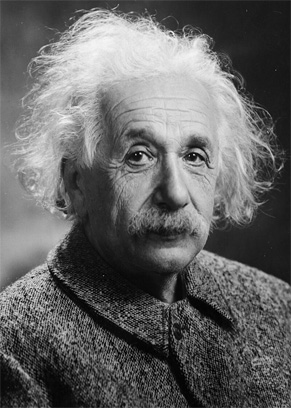
Albert Einstein, the man synonymous with genius, defied expectations in his early years. Though he developed slowly as a child, his curiosity and independent thinking blossomed later. By his teens, he was already delving into advanced mathematics and physics concepts. His groundbreaking theories of relativity revolutionized our understanding of gravity, space, and time, forever changing the landscape of modern physics.
2. Marie Curie: The Pioneering Woman in Radioactivity
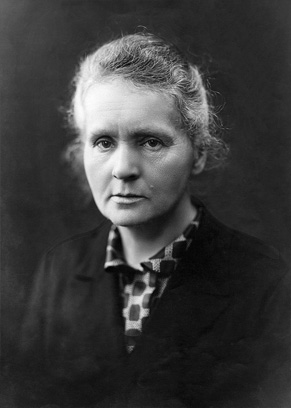
Marie Curie wasn’t just a brilliant scientist; she shattered barriers in a male-dominated field. She conducted groundbreaking research on radioactivity, a mysterious phenomenon involving the emission of energy from certain elements. Working tirelessly alongside her husband Pierre Curie, they discovered two new elements – polonium and radium. Marie’s dedication continued after her husband’s tragic death. She became the first woman to win a Nobel Prize (in Physics) and the first person ever to win a second Nobel Prize (in Chemistry). Her pioneering research paved the way for advancements in medicine, particularly cancer treatment.
3. Isaac Newton: The Apple That Ignited a Scientific Revolution
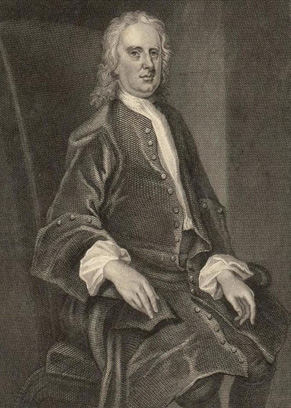
The story of Isaac Newton and the falling apple is as iconic as it is symbolic. While the exact details may be apocryphal, it highlights Newton’s keen observation skills and insatiable curiosity. The falling apple is said to have sparked his contemplation of gravity, the invisible force that pulls objects towards the Earth’s center. His laws of motion and universal gravitation laid the foundation for classical mechanics, shaping our understanding of motion for centuries.
Read More: Top 15 Mind-Blowing Facts About Your Brain
4. Stephen Hawking: The Mind That Transcended Physical Limitations

Stephen Hawking‘s story is one of exceptional resilience and intellectual brilliance. Diagnosed with amyotrophic lateral sclerosis (ALS) at a young age, he defied expectations and went on to become one of the most renowned theoretical physicists of our time. Despite his physical limitations, Hawking’s mind explored the vastness of the cosmos. He made significant contributions to our understanding of black holes, the origins of the universe, and the nature of space and time. His book, “A Brief History of Time,” became a bestseller, bringing complex scientific concepts to a wider audience.
5. Galileo Galilei: Championing Heliocentrism in the Face of Adversity
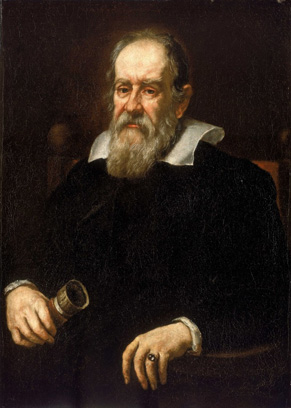
Galileo Galilei, a brilliant astronomer and physicist, dared to challenge the prevailing beliefs of his time. Through his telescopic observations, he provided strong evidence to support the heliocentric model, which places the Sun at the center of the solar system. This directly contradicted the geocentric model (Earth-centered) favored by the Catholic Church. Galileo’s unwavering support for heliocentrism led to a clash with the Church authorities, resulting in his trial and house arrest. Despite the persecution, Galileo’s scientific discoveries and unwavering spirit paved the way for a new understanding of the universe.
6. Charles Darwin: Solving the Puzzle of Life’s Diversity

Charles Darwin was a naturalist who embarked on a journey that would change the way we understand the natural world. His meticulous observations during his voyage on the HMS Beagle led him to piece together the concept of evolution by natural selection. Darwin realized that species weren’t fixed but changed over generations. Those with traits that helped them survive were more likely to pass on their genes, slowly changing a whole population over time. His theory revolutionized biology and continues to shape our understanding of the incredible diversity of life on Earth.
Read More: Discover the Latest Tech Innovations | Stay Ahead of the Curve
7. Alan Turing: Code breaker, War Hero, and Father of Computer Science
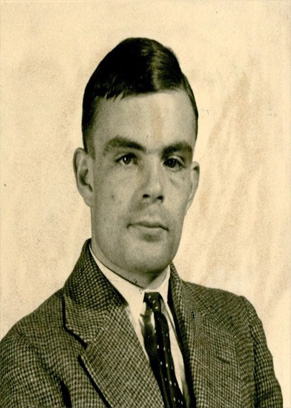
Alan Turing possessed a brilliant mathematical mind that proved crucial during World War II. His ingenious work deciphering the German Enigma code helped the Allies gain a significant advantage. But Turing wasn’t just a codebreaker; his theoretical work laid the groundwork for the development of computers. He envisioned a machine that could perform different tasks based on instructions (programs), a concept that drives modern computing.
8. Nikola Tesla: The Visionary Who Harnessed Electricity
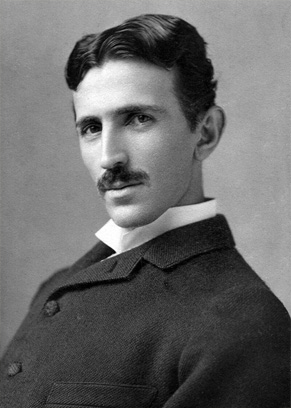
Nikola Tesla was a brilliant inventor and electrical engineer whose contributions dramatically shaped the world we live in. His most significant achievement was the development of the alternating current (AC) power system, which became the standard for electricity transmission around the globe. Tesla’s groundbreaking inventions also include the induction motor, wireless communication technologies, and even concepts for futuristic flying machines!
9. Jonas Salk: Defeating a Devastating Disease
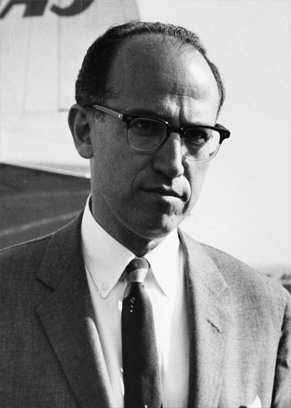
Jonas Salk dedicated his life to eradicating polio, a crippling and often deadly viral disease that primarily affected children. After years of relentless research and experimentation, Salk developed a polio vaccine that proved to be both safe and effective. The mass vaccination campaigns that followed led to a dramatic decline in polio cases worldwide, saving countless lives and preventing paralysis for millions.
Read More: 15 Ways Artificial Intelligence is Transforming Our World
10. Rosalind Franklin: The Unsung Heroine of DNA
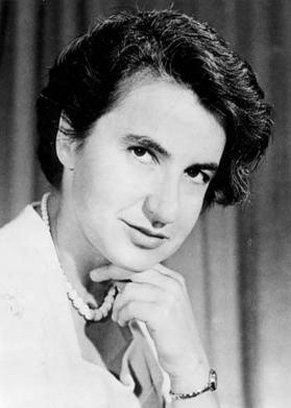
Rosalind Franklin was a brilliant chemist whose expertise in X-ray crystallography produced crucial images of DNA molecules. These images helped James Watson and Francis Crick unlock the double-helix structure of DNA, the molecule that carries our genetic information. Unfortunately, Franklin’s contributions were often overlooked during her lifetime, and she didn’t receive full recognition for her pivotal role in one of the greatest scientific discoveries of the 20th century.
11. Jane Goodall: A Life Among Chimpanzees
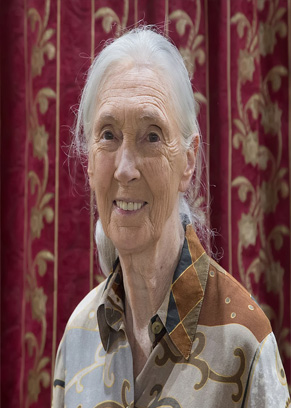
Jane Goodall’s pioneering work with chimpanzees in Tanzania transformed our understanding of these primates, our closest living relatives. Her patient and immersive observations in the wild revealed chimpanzees’ complex social structures, tool use, and even hints of emotions that were once thought to be unique to humans. Goodall’s research challenged the traditional boundaries between humans and other animals, fostering greater empathy and respect for the natural world.
12. Archimedes: The “Eureka!” Moment of Scientific Discovery
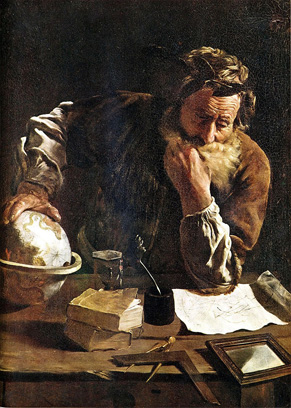
Archimedes was a brilliant mathematician and inventor in ancient Greece. He is famous for his “Eureka!” moment, when he leapt from his bathtub after realizing how to measure the volume of irregularly shaped objects. This discovery, known as Archimedes’ principle, relates to buoyancy (why things float). Archimedes applied his scientific genius to solve practical problems as well, designing powerful machines for the defense of his city.
Read More: Top 15 Scientific Breakthroughs that Shaped our World | Discover the Impact
13. Ada Lovelace: The World’s First Computer Programmer
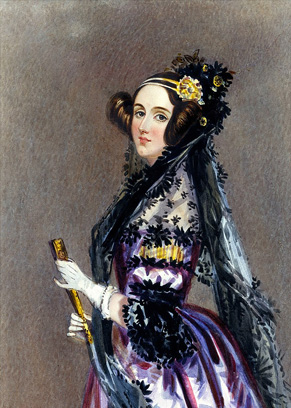
Long before electronic computers existed, Ada Lovelace foresaw the potential of machines that could perform calculations and even manipulate symbols. Working with Charles Babbage, the designer of the Analytical Engine (a theoretical mechanical computer), Lovelace wrote instructions for this machine that are considered the first example of computer programming. Her visionary insights set the conceptual framework for the computing revolution that would come over a century later.
14. Thomas Edison: The Inventor with a Thousand Dreams
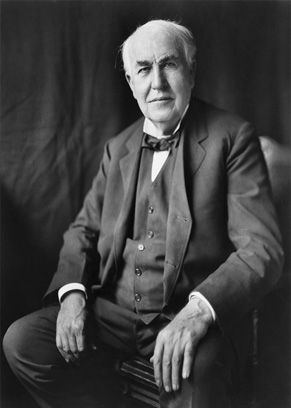
Thomas Edison was the ultimate prolific inventor. With over 1,000 patents to his name, he was a driving force behind innovations that transformed everyday life. His most famous invention, the incandescent lightbulb, brought artificial light into homes and workplaces. Edison didn’t just invent things; he set up entire systems for generating and distributing electricity. He also played a major role in developing motion pictures, sound recordings, and many other technologies.
15. Leonardo Da Vinci: The Renaissance Genius
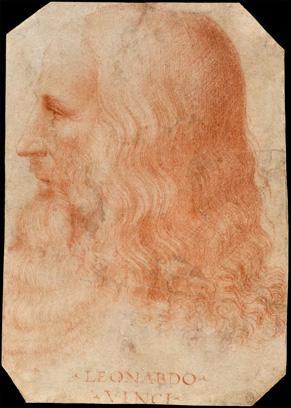
Leonardo da Vinci was the embodiment of the Renaissance ideal, excelling in numerous fields. He was a brilliant painter, creating masterpieces like the Mona Lisa and The Last Supper. He was also a gifted sculptor, architect, engineer, and inventor. Da Vinci’s notebooks reveal the depth of his curiosity and fascination with the human body, anatomy, and the natural world. His sketches of flying machines and other mechanical inventions were centuries ahead of their time.
Conclusion:
From unlocking the secrets of the atom to venturing into the vastness of space, these famous scientists have fundamentally changed the way we view the world and ourselves. Their groundbreaking discoveries, unwavering curiosity, and relentless pursuit of knowledge continue to inspire us to push boundaries, question assumptions, and make the impossible possible. The stories of these brilliant minds remind us of the incredible power of the human intellect and the profound impact science has on our lives.
15 FAQs (Frequently Asked Questions):
-
What makes someone a great scientist?
Great scientists are intensely curious about the world around them. They ask big questions, observe carefully, and aren’t afraid to challenge conventional wisdom or make mistakes. A relentless drive to understand how things work fuels their passion for discovery.
-
Are scientists born or made?
While some people might have a natural aptitude for science, anyone can become more science-minded! It’s about developing a questioning attitude, learning how to test ideas, and being willing to uncover new things about the world.
-
How can I learn more about famous scientists?
There are fantastic resources to explore! Read biographies, watch documentaries, visit science museums, and look for online articles and videos that explain scientific discoveries in interesting ways.
-
Can I become a scientist?
Absolutely! If you’re passionate about understanding how the world works, follow your interests. Study science subjects, get involved in experiments, and never stop asking questions. There are many different areas of science to explore!
-
How has science changed our world?
Science has transformed our world in countless ways. It’s given us life-saving medicines, technologies that connect us across the globe, and a deeper understanding of the universe. Science is also helping us tackle challenges like climate change, finding new sources of energy, and protecting our planet for future generations.
-
What were some famous science experiments that changed history?
1)Galileo dropping objects from the Leaning Tower of Pisa to study gravity.
2)Marie Curie’s investigation of radioactivity, leading to the discovery of new elements.
3)Rosalind Franklin’s X-ray crystallography images that revealed DNA’s structure.
4)Jonas Salk’s field trials that proved the effectiveness of his polio vaccine.
5)Alan Turing’s codebreaking work at Bletchley park during World War II. -
Why do many scientists work together?
Science is often a collaborative effort. Scientists build upon each other’s discoveries, share insights, and tackle complex problems together. Working in teams can bring diverse expertise, allow for larger-scale experiments, and speed up the process of discovery.
-
Do scientists ever face setbacks or failures?
Yes! Failure is a natural part of the scientific process. Many experiments don’t go as planned, and hypotheses sometimes turn out to be wrong. But scientists learn from failures, adjust their approach, and persevere in their search for knowledge.
-
What are some exciting areas of scientific research today?
Science is always pushing forward! Some exciting areas of research include:
1)Artificial Intelligence (AI) and machine learning.
2)Gene editing technologies and personalized medicine.
3)Space exploration and the search for extraterrestrial life.
4)Renewable energy sources and mitigating climate change.
5)Brain research and understanding consciousness. -
What advice would a famous scientist give to someone interested in science?
1)Stay curious! Never stop asking questions and exploring.
2)Don’t be afraid to experiment and try new things.
3)Embrace mistakes as opportunities to learn and grow.
4)Read widely about science and learn how others have made discoveries.
5)Seek out mentors and find a community who shares your passion for science. -
Are there any famous scientists working today?
Yes! There are many brilliant scientists working right now making incredible breakthroughs. Some notable examples include:
Jennifer Doudna (CRISPR gene-editing pioneer)
Jane Goodall (continued work in primatology and conservation)
Kip Thorne (gravitational wave researcher)
Elizabeth Blackburn (telomere and aging research)
Michio Kaku (theoretical physicist and science communicator) -
How is science different from other ways of knowing things?
Science relies on a systematic approach to understanding the world based on:
Evidence: Scientists gather data through observations, experiments, and careful measurements.
Testing ideas: Scientists develop hypotheses and test them rigorously to see if they hold up.
Peer Review: Scientific discoveries get scrutinized by other scientists to ensure the work is sound.
Open to change: Science is constantly evolving and refining its understanding as new evidence comes to light. -
Why is it important to learn about science?
Learning about science helps us:
Make informed decisions: Understanding science helps us evaluate information on topics like health, technology, and the environment.
Solve problems: Science gives us tools to tackle challenges and create innovative solutions.
Appreciate the world around us: Science reveals the amazing complexity and beauty of the natural world. -
Can science answer all our questions?
While science is incredibly powerful, there are limitations. Some questions about morality, the meaning of life, or the nature of consciousness may fall beyond the scope of scientific inquiry. Science does, however, offer an incredible foundation for building our understanding of the universe.
-
Where can I find reliable scientific information?
Look for trustworthy sources like:
Reputable science magazines (Scientific American, Discover, National Geographic)
Government science agencies (NASA, the CDC)
University websites (.edu)
Science museums and educational institutions

